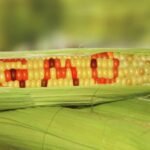December 6, 2022, Germany has granted EUR 30 million to the UN’s International Fund for Agricultural Development (IFAD) to support poor rural communities cope with the impacts of the global food, fertilizer and energy crisis. Germany’s funding will be channelled as immediate support, through existing IFAD programmes operating in countries that are hardest hit by setbacks.
Poor rural people in developing countries continue to be among the hardest hit by the multiple impacts of the COVID-19 pandemic, extreme weather events associated with the climate crisis and the war in Ukraine. Small-scale farmers, who produce one-third of the world’s food, also spend up to 70 per cent of their household incomes to buy food for their families. As prices for food, fuel and fertilizers rise, their ability to produce food and feed their families and communities is at risk.
By addressing the urgent needs caused by the crisis, IFAD’s Crisis Response Initiative (CRI), launched last May, aims to ensure that small-scale farmers in high-risk countries can continue to produce food while protecting the longer-term progress made in recent years in the overall development of rural areas in low- and middle-income countries through its programme of loans and grants.
“Germany has reacted immediately to Russia’s war of aggression against Ukraine and the dire consequences for food security around the world. As G7 presidency we initiated the Global Alliance for Food Security (GAFS) and keep working with our international partners to support the countries most affected to become less dependent on food imports and more resilient,” said Svenja Schulze, Federal Minister for Economic Cooperation and Development, Germany.
“IFAD stands ready to provide urgent assistance to small-scale farmers so that they can maintain their economic activity and don’t feel forced to adopt extreme coping measures, such as skipping meals or relocating. In doing so, we are supporting poor families and communities, and underpinning global stability as we navigate this perfect storm created by multiple concurrent crises,” said Alvaro Lario, President of IFAD.
Building on IFAD’s recent experience in responding to COVID-19, CRI is geared toward ensuring small-scale farmers’ access to key agricultural inputs, fuel, and fertilizer; access to finance for immediate needs; and access to markets and market-related information. IFAD’s support is also contributing to reducing post-harvest losses by investing in small-scale infrastructure.
IFAD called on its Member States last May to contribute to the significant resources required to cover all 22 countries listed in the initiative as priorities, based on measures of need. The Netherlands was the first member state to commit its support, announcing its contribution of EUR 10 million at the launch of the crisis response. Later, Ireland provided EUR 1 million and the United States of America pledged US$10 million of contributions. With this additional contribution from Germany, IFAD has raised over US$50 million, and is able to support 15 of the 22 priority countries identified. Fundraising efforts continue in order to reach the US$100 million target and assist all 22 countries identified – and any additional countries in need of assistance.
Funding received from Germany allows IFAD to support approximately nine countries most affected. These may include Yemen, Mozambique, Haiti, Ethiopia, Burundi, Madagascar, the Central Africa Republic, Malawi, Chad and Niger.
Since the establishment of IFAD in 1977, Germany has contributed a total of US$711 million in core funding to IFAD’s work on climate action, gender equality, food and nutrition security, working towards equitable and sustainable food systems. In addition, Germany has provided loans for up to EUR 800 million through KfW, Germany’s public development bank. With its latest contributions, Germany has provided a total of EUR 167 million in supplementary funds to support inclusive sustainable value chains development, climate adaptation, and youth employment.
IFAD is coordinating its crisis response with other initiatives recently launched, such as the Food and Agriculture Resilience Mission (FARM) and the G7 Global Alliance for Food Security (GAFS).







